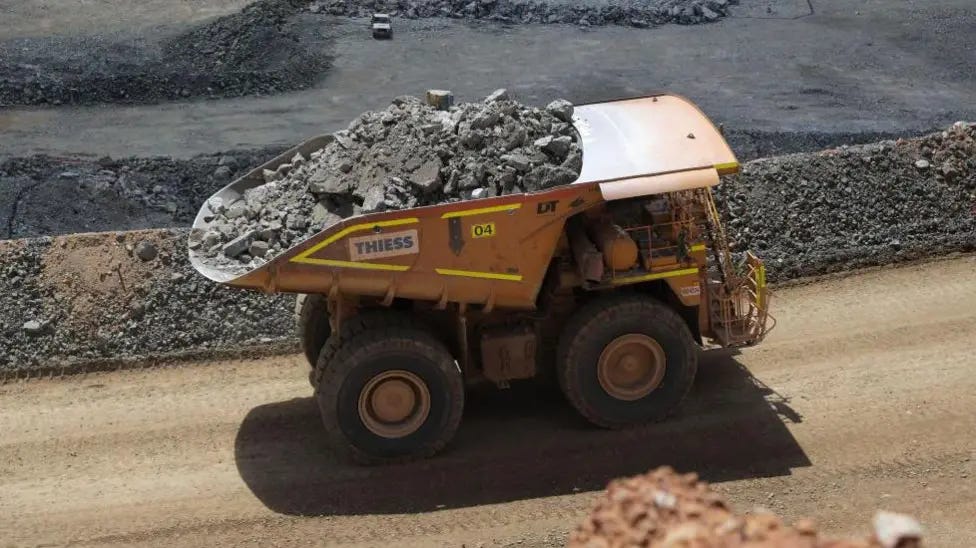When the same extractive model is strategic in Australia but exploitative in Africa
Rethinking how Africa captures value from its resources
I’m sure you’ve heard by now that Africa is stuck in an exploitative extractive model.
You know the drill: foreign powers swoop in, dig up our minerals, cart them off, process them into higher-value goods, pocket the profits, and leave us with holes in the ground and dreams deferred. The criticism is familiar—whether we’re talking about cobalt in the DRC, bauxite in Guinea, or green hydrogen in Namibia. The subtext? If only we processed our resources locally and captured more of the value chain, we’d be rich, industrialized, and free from neocolonial chains.
But here’s a curveball: Australia does the same thing.
Despite producing almost half of the world's lithium supply, Australia mostly ships unprocessed lithium ore to China. China, in turn, does the refining and battery manufacturing, raking in the value-added margins. Sounds familiar?
And yet no one accuses Australia of being "exploited." Why? Because they made a strategic choice. They are not being locked out of value chains by force or dysfunction—they’re sitting out by design. Processing is dirty, expensive, and technologically intensive. Meanwhile, Australia makes serious bank selling the dirt: lithium exports grew from $1.3 billion AUD in 2020-21 to over $18 billion AUD in 2022–23.
A big difference between Australia and African countries here is one of agency and choice. Where Australia exercises strategic restraint, Africa operates under structural constraint.
The extractive model isn’t inherently a trap—it’s how you play the game. Australia has a robust industrial base, capital markets, and regulatory institutions. It can afford to delay local processing, bide its time, and pivot when geopolitical winds shift (as they are now, with U.S.- and EU-backed “friend-shoring” initiatives to counter China’s dominance). It’s not about refining everything, but refining when it makes strategic sense.
African countries, by contrast, often don’t have the luxury of that choice. Many lack the infrastructure, expertise, or capital to develop competitive downstream sectors. Worse, policy is often externally constrained—think strings attached to foreign aid or weak negotiating leverage in mineral deals. The result? Even when governments want to retain more value, they do so from a position of fragility, not strength.
In the end, whether driven by choice or shaped by constraint, stagnation has a cost: both Africa and Australia risk losing out if they don't evolve.
Australia is now racing to catch up in lithium refining because strategic autonomy matters more in a fragmented world. Meanwhile, several African countries are finally experimenting with new approaches—export bans, special economic zones, resource-backed infrastructure deals. These are risky moves, but they signal ambition.
We should stop treating extractive models (or any particular approach) as inherently bad and instead ask: who’s making the choices, under what constraints, and to what end? A bad model in Africa might be a savvy strategy in Australia, and vice versa.


